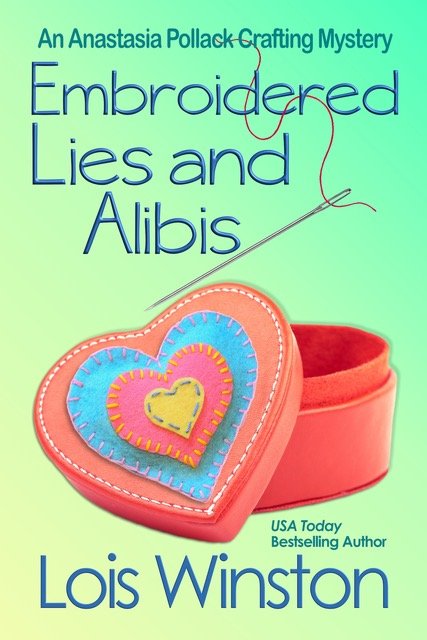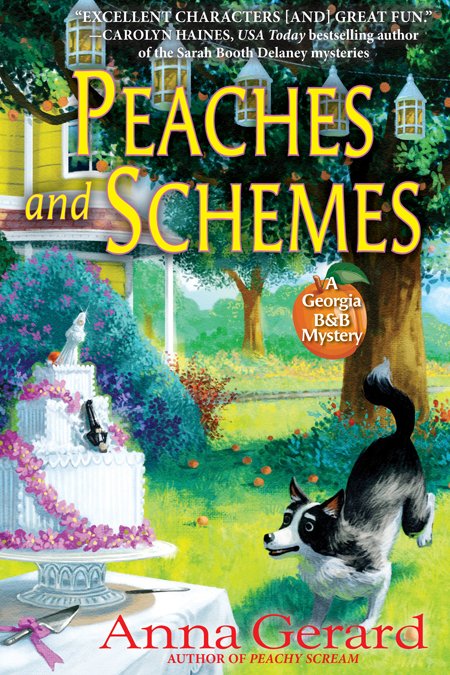Let’s Talk with James M Jackson
Does Formatting Matter?
by James M Jackson
 I speculated to a friend that with more people reading on electronic readers, tablets, and phones that many people are no longer bothered by wonky formatting issues. Would that tolerance gradually spread to printed material as well?
I speculated to a friend that with more people reading on electronic readers, tablets, and phones that many people are no longer bothered by wonky formatting issues. Would that tolerance gradually spread to printed material as well?
Nancy J. Cohen talked about recently revising and reissuing her backlist mysteries. I have just done the same for my first released, (but second in the series and therein lies a tale), BAD POLICY. I can’t tell you how many hours I spent eliminating orphans and widows but keeping the last line on the page at exactly the same place.
I once received a review that cost me a star because the publisher had used both indents and extra space between paragraphs—a real error in that reviewer’s eye. So question for y’all: Do you care about the layout and type used in printed books, and if you do, how much?
Enter our Rafflecopter to win a Kindle or PDF version of the re-issued BAD POLICY.
Rafflecopter action: Follow my author page on Amazon: http://www.amazon.com/James-Montgomery-Jackson/e/B004U7FRP2
The fine print:
No purchase is necessary. You must be at least 18 years old to enter. By submitting your entry, you agree to be entered into each Booklover’s Bench author’s email newsletter list, as well as the list of the host of this contest, if different. We will not share your information with anyone else, and you may unsubscribe at any time.
Winners will be chosen by Rafflecopter from all entrants for the prize. Winners will be notified by email. Booklover’s Bench authors are not responsible for transmission failures, computer glitches or lost, late, damaged or returned email. Prizes must be claimed within 5 days or they will be forfeited.
Posted in Let's Talk, with James M. Jackson, zed: Former Authors • Tags: BLB Discussion, Does Formatting matter, giveaway, James M. Jackson, Let's Talk, Rafflecopter | 11 Comments







I read a book recently in which there was an extra space between paragraphs. It was disconcerting. It’s best to follow standard formatting principles so readers concentrate on the story and not on irregularities in layout or typeface.
Unless one is going for an avante garde approach with your book, I agree that avoiding things that distract is a good objective.
An indie author is at the mercy of the conversion software used by the distribution channel (a subject I’ve been delving into on my blog recently). If readers understood the author has little, if any say in what the finished product looks like, maybe they wouldn’t ding an author. They should be reviewing the story, not the vagaries of their choice of reading format. I have a bugaboo about text being fully justified because I enlarge the font to read in bed without my glasses. But I accept it as part of the “package” and would never hold the author responsible.
For example: If you format with Draft2Digital, you’ll have no indents on the first paragraph of every chapter regardless of how you submit your manuscript. With others, even if you’ve formatted those paragraphs with no indents, the conversion process puts them back.
I can adjust to whatever format my tablet displays; other readers should as well.
Terry — My sense is that readers are fairly forgiving when it comes to e-books for reasons just as you mentioned. I think readers of print versions are much less forgiving.
I want my ebooks to look like my books. If you give me funky formating on my ebooks I’m probably going to stop reading cause it makes me want to throw my ereader at the wall.
I hear you Becky — although the device you read your e-books on may make some changes that are beyond author or publisher control (font type, use of drop caps, etc). And when readers change font size to make them much larger than normal (even larger than large type books), they sometime cause other issues such as extra white spaces in lines in order to keep the full-line justification.
Fingers crossed none of that junk happens with my books!
I think the variety of platforms — and the variety of textual experiences they provide, either by the readers’ choice or the machine’s — has created flexible expectations. But print is still supposed to look a certain way (I couldn’t tell you what that way is, only recently having introduced concepts like kerning into my vocabulary) but even if I can’t describe what’s “off,” it registers as off. And “off” is equated with lack of quality in that subconscious well in our brain where we keep involuntary biases. I’m not sure this is true for my daughter’s generation, at least those who have been exposed to print materials in the variety of available formats. I’m betting it’s not.
As a reader, the extra spaces between paragraphs bothers me. It’s like my eye has to jolt down to that next space, which is different from the natural flow of reading. As a writer who has formatted backlist titles for author’s editions releases, I’ve experienced abject misery trying to get all those wonky formatting issues ironed out. To upload books, you need to have three formats: epub, mobi, and pdf. I can get everything to be perfect in epub and pdf, but I’ll have random extra pages show up in the mobi file. It has nothing to do with hard returns, and I think I finally figured out it was the heading style for chapters that was causing my issue. Let me tell you, folks who format for a living earn their money. I’m planning to hire one next time I have a book to upload.
I am strictly a reader and know absolutely nothing about formatting, etc of a book. I only know I don’t like it when I see something wrong. In other words, I know it when I see it. I disagree with you if you truly think people are becoming immune to sloppy formatting, editing, spelling and grammar errors. Those things tend to drop me right out of the story and I start noticing more and more errors. If I read a new-to-me author with a just published ebook and it is loaded with errors, I probably won’t buy her books again. This type of thing tells me the author doesn’t care enough about her/his work to clean it up and make things right. Same goes in print books. One doesn’t see many errors in the traditionally published books so it isn’t a problem…but it would be if the book is published by a small, independent publishing house. Why should I pay good money for a shabby product?
Karen — I was only speaking to what I perceive is a growing tolerance for some formatting wonkiness in ebooks.
I am with you all the way regarding sloppy editing. It takes me out of the story. Enough of them and I put the book down no matter how good the story.
I have written blogs about how poor copy editing can negatively affect a new author’s career — if the author and publisher don’t care, why should a reader care to read the book? [I do see more and more egregious errors appearing in books from the large publishing houses in recent years especially as to not catching homonym errors and allowing wrong word usage.]
It will not make me drop stars as I base review on what is written not the spacing. I will drop a star for misspelling. As long as it is consistent.